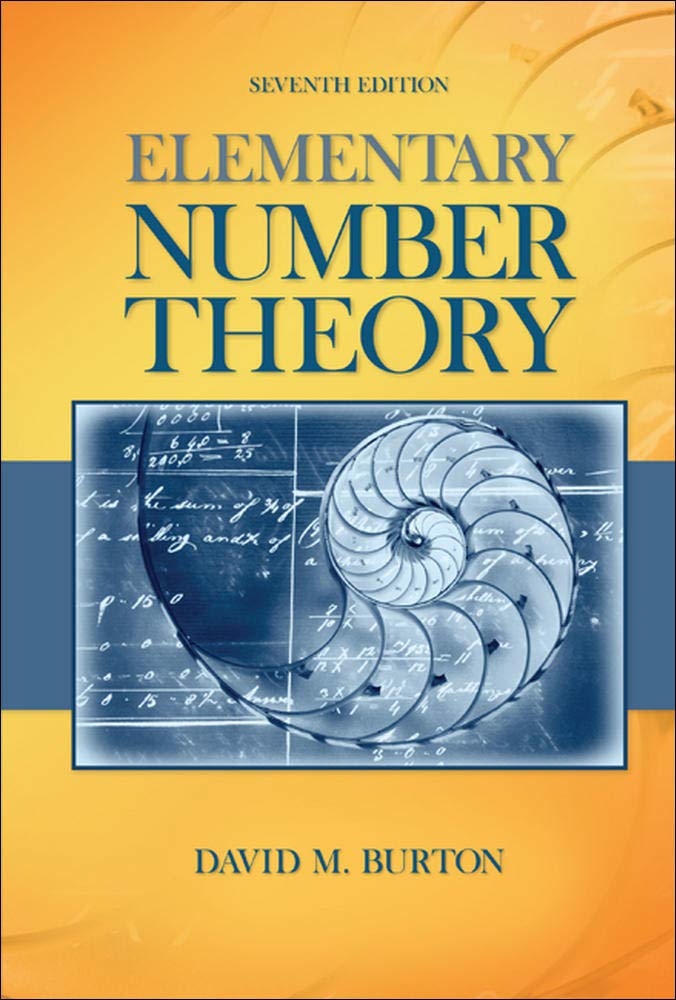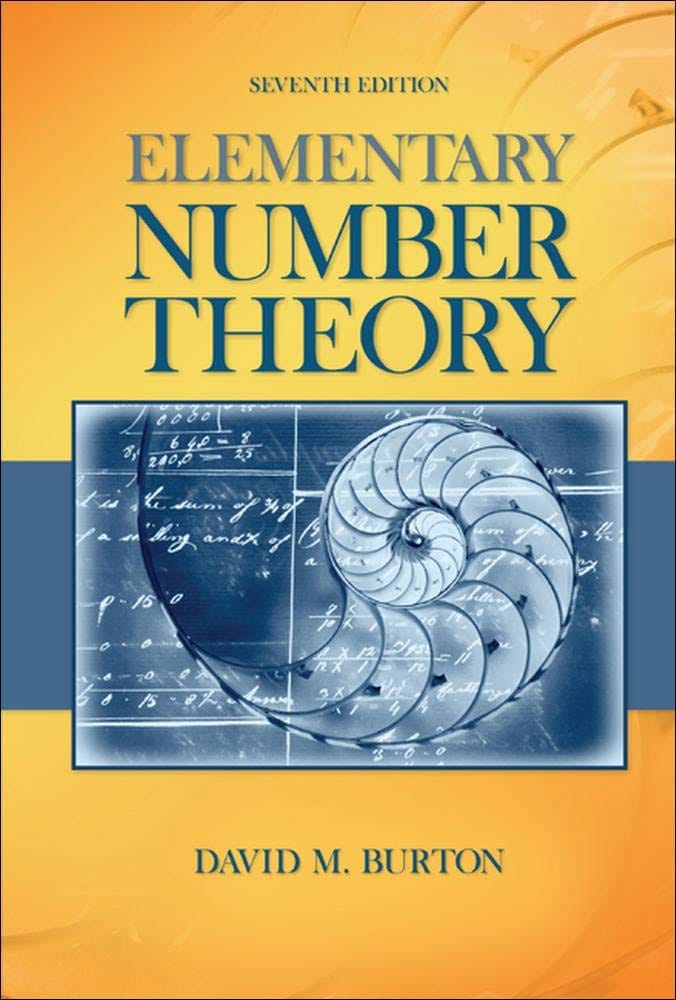
Elementary Number Theory Problems 3.2 Solution (David M. Burton's 7th Edition) - Q4
My Solution for "Establish the following facts: (a) $\sqrt{p}$ is irrational for any prime $p$. (b) If $a$ is a positive integer and $\sqrt[n]{a}$ is rational, then $\sqrt[n]{a}$ must be an integer. (c) For $n \geq 2$, $\sqrt[n]{n}$ is irrational. [Hint: Use the fact that $2^n > n$.]"
Table of Contents
This is my solution for Chapter 3.2 Q4 in the book Elementary Number Theory 7th Edition written by David M. Burton.
Background
All theorems, corollaries, and definitions listed in the book's order:

I will only use theorems or facts that are proved before this chapter. So you will not see that I quote theorems or facts from the later chapters.
Question
Establish the following facts:
(a) $\sqrt{p}$ is irrational for any prime $p$.
(b) If $a$ is a positive integer and $\sqrt[n]{a}$ is rational, then $\sqrt[n]{a}$ must be an integer.
(c) For $n \geq 2$, $\sqrt[n]{n}$ is irrational.
[Hint: Use the fact that $2^n > n$.]
Solution
(a)
We want to prove this by contradiction. Suppose $\sqrt{p}$ is rational. Then $\sqrt{p} = \frac{a}{b}$ for some integers $a$ and $b$, which means:
$$ \begin{equation} \begin{split} \sqrt{p} & = \frac{a}{b} \\ p & = \frac{a^2}{b^2} \\ pb^2 & = a^2 \end{split} \nonumber \end{equation} $$The right-hand side will have an even number of primes because it is square, while the left-hand side will have an odd number of primes because of $p$. This is a contradiction. So, $\sqrt{p}$ must be irrational.
(b)
Because $\sqrt[n]{a}$ is rational, there exists an integer $m$ and an integer $k$ such that $\sqrt[n]{a} = \frac{m}{k}$ where $gcd(m, k) = 1$ and $k \neq 0$. It means that $a = \frac{m^n}{k^n}$.
From Problems 2.4 Q5(a), we know "If $gcd(a, b) = 1$, $gcd(a^n, b^n) = 1$." Thus $gcd(m, k) = 1$ implies that $gcd(m^n, k ^n) = 1$.
Since $a = \frac{m^n}{k^n}$ is a positive integer and $gcd(m^n, k ^n) = 1$, $k$ must be $1$.
Thererfore, $\sqrt[n]{a} = \frac{m}{k} = m$, which means $\sqrt[n]{a}$ must be an integer.
(c)
Assume to the contrary, there exists an integer $n \geq 2$ for which $\sqrt[n]{n}$ is rational.
As $n \geq 2$, $\sqrt[n]{n} \gt 0$. From (b), we know $\sqrt[n]{n}$ is an integer.
Since $n \lt 2^{n}$, we have $\sqrt[n]{n} \lt 2$. $\sqrt[n]{n}$ can only be $1$ for positive integers. But it is impossible for $n \geq 2$. This, however, is a contradiction.
Therefore, For $n \geq 2$, $\sqrt[n]{n}$ is irrational.
Read More: All My Solutions for This Book
Related Pages
Ranblog Newsletter
Join the newsletter to receive the latest updates in your inbox.


